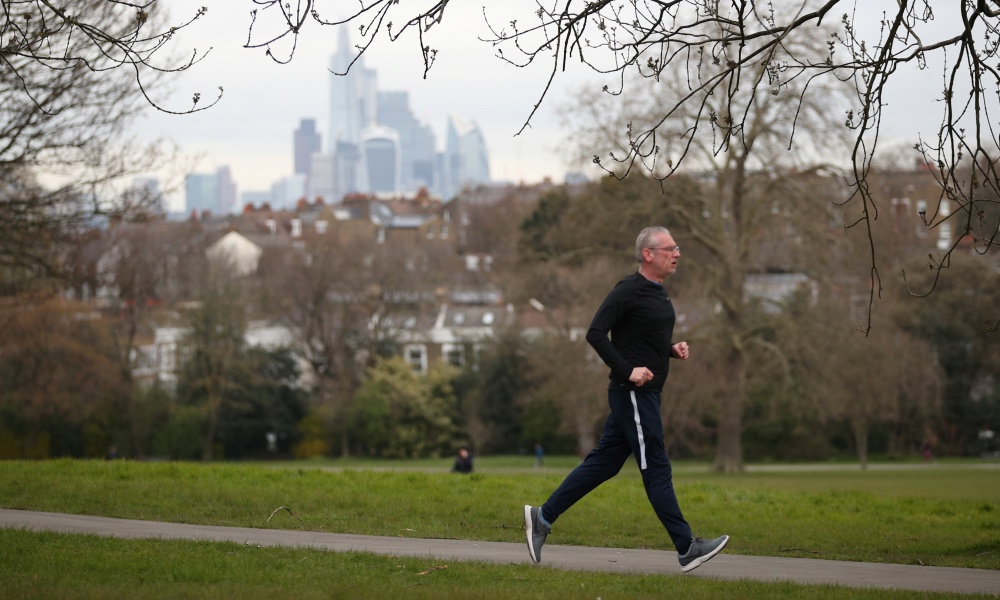London, UK
Thomson Reuters Foundation
A stroll in the park has turned into a battle for space among residents of crowded urban areas, as rules on distancing from others to stop coronavirus spreading kick in.
With lockdowns or restrictions on movement imposed in hundreds of cities, tempers are running short in crowded green spaces, with panting, perspiring joggers coming in for particular ire for failing to keep their distance.
“For people who constantly obsess over how far they’ve run, joggers sure don’t know how long 2 metres is,” tweeted British journalist James Ball, referring to the recommended safe distance.

A jogger runs in Brockwell Park, as the spread of the coronavirus disease (COVID-19) continues, London, Britain, on 30th March. PICTURE: Reuters/Hannah McKay
City-dwellers in Britain – where people are allowed out to exercise once a day – appear to be particularly vexed by the issue, though there were similar reports in French cities before the imposition of a stronger lockdown.
In other countries where taking the dog out is now the only legitimate reason to go for a walk, owners have been accused of using their pets as a ploy to leave the house. Joggers and dog owners have also blamed each other for hogging space.
Narrow public pathways and small city homes with little outside space were adding to pressure in some cases, said Ellen van Bueren, an academic at the Amsterdam-based AMS Institute, which explores urban solutions.
“Public spaces have been especially designed for people to meet,” she told the Thomson Reuters Foundation.
“What you now want to use public spaces for is actually to let people be outside but not meet – or at least keep a distance from each other. And that is something that just hasn’t been taken into account at all in the design.”
While no group can claim first rights to the footpath, those who fail to give room could now be in breach of the law in many countries, said Sharifah Sekalala, an international law expert at Warwick University in Britain.
Though countries do not generally have a specific right to personal space written into legislation, many have introduced emergency laws to enforce restrictions on movement and behaviour that carry the threat of fines or even arrest, she said.
“Relying on scientific advice, governments can curtail people’s movements but also their behaviour while they are in public places,” she said in emailed comments.
“This may mean that people are obliged…to keep a certain distance from other people in public places and potentially they would be breaking the law if they didn’t comply.”
Meanwhile, people are already finding workarounds to protect their space, according to van Bueren, who said she had seen people carrying sticks or ropes to mark out safe distances.
“Then you logically see it’s more visible when clashes might occur or you come into someone’s space,” she said.





